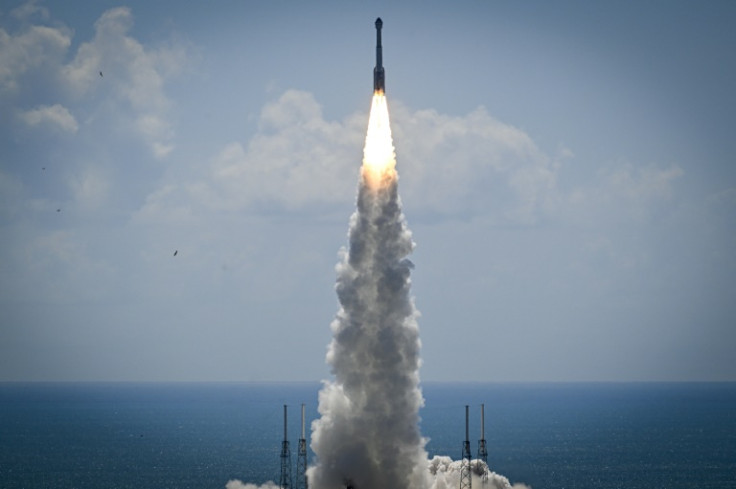
The U.S. Federal Aviation Administration (FAA) has given the go ahead to SpaceX's Falcon 9 rocket to return to flight solely for the European Space Agency's Hera asteroid mission from Florida.
"The SpaceX Falcon 9 vehicle is authorized to return to flight only for the planned Hera mission scheduled to launch on Oct. 7 from Cape Canaveral Space Force Station in Florida," Reuters reported citing a statement from the FAA.
On Sunday, Elon Musk revealed that the planned liftoff would be on Monday at 10:52 a.m. ET.
According to the report, the agency stated that it has "determined that the absence of a second stage reentry for this mission adequately mitigates the primary risk to the public in the event of a reoccurrence of the mishap experienced with the Crew-9 mission."
The report also noted that the FAA said SpaceX should investigate what transpired after a NASA astronaut mission where the second stage of the Falcon 9 malfunctioned, which eventually grounded the launch vehicle again for the third time. The occurrence happened in a span of three months.
SpaceX has completed that mishap report and delivered it to the FAA on Oct. 4. The FAA stated it approved the Falcon 9 for "one mission only," the Hera launch, the same day, according to a report on SpaceNews.
It is no secret that Musk and the FAA have not seen each other eye to eye in recent weeks. Last month, the FAA proposed $633,009 in civil penalties against Musk's SpaceX for allegedly failing to follow its license requirements during two launches in 2023.
The European Space Agency revealed that the Hera mission "perform a detailed post-impact survey of the target asteroid, Dimorphos – the orbiting moonlet of a binary asteroid system known as Didymos."
The Didymos system humankind's first attempt at a technique that may one day be used to protect Earth from an asteroid on a collision course – asteroid deflection.
The mission will decipher the effect of the impact that the Double Asteroid Redirection Test (DART) spacecraft of NASA had with Dimorphos, an asteroid in 2022, in testing the planetary defense system. It was found to be the first time that the motion of a celestial body was altered by a spacecraft.
Data from the mission is expected to provide a perspective into future deflection missions, with its focus on how to redirect objects, which could pose as a threat to earth whenever the latter is in the object's collision course.
SpaceX is targeting October 7 for Falcon 9's launch. If needed, a backup launch opportunity is available on October 8 at 10:46 a.m. ET.







